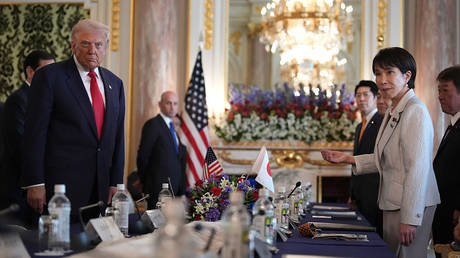Hidden Debts: South African Constitutional Court declines to hear Chang’s appea
The South African Constitutional Court on Tuesday denied Mozambique’s former Finance Minister Manuel Chang leave to appeal to this court against the attempts to extradite him to the United States, where he would face charges in connection with Mozambique’s largest ever financial scandal, known as the case of the “hidden debts”.
The South African Constitutional Court on Tuesday denied Mozambique’s former Finance Minister Manuel Chang leave to appeal to this court against the attempts to extradite him to the United States, where he would face charges in connection with Mozambique’s largest ever financial scandal, known as the case of the “hidden debts”.
The request for leave to appeal has been with the Constitutional Court for about six months. But when the decision finally came, it was extremely short.
The Court order said: “The Constitutional Court has considered this application for leave to appeal directly to it. It has concluded that the application falls, to be dismissed with costs, as it is not in the interests of justice to hear it at this stage. Order: Leave to appeal is dismissed with costs”.
So not only has Chang’s attempt to appeal failed, but he must now pay the legal costs involved.
The Court’s order, however, is only procedural – it does not constitute a demand that Chang be put on the first plane to the US.
The avenues for appeal may not have been entirely exhausted. Last November, a judge in the Gauteng High Court ruled that Chang should be extradited to the US. The Mozambican Attorney-General’s Office promptly appealed – not only to the Constitutional Court but simultaneously to the Supreme Court in Bloemfontein.
The Bloemfontein court has said nothing so far – and even if it rules against Chang, the PGR could still go back to the Constitutional Court, which was careful to say it would not hear the appeal “at this stage”.
This drama goes back to Chang’s days as Finance Minister, when, in 2013 and 2013, he played a key role in ensuring that three fraudulent, security-linked companies, namely Proindicus, Ematum (Mozambique Tuna Company), and MAM (Mozambique Asset Management), obtained loans of more than two billion US dollars from the banks Credit Suisse and VTB of Russia.
The loans were only granted because Chang signed illicit loan guarantees, committing the government to pay the banks if the companies defaulted. And they did default. The companies were never viable, and all three swiftly went bankrupt and are now being liquidated.
The effect of the state guarantees was to convert loans into debts, and the creditors are demanding that the Mozambican government pay up.
Chang was detained at Johannesburg’s International Airport in December 2018, when he was on his way to Dubai. Since then the South African authorities have not been able to decide whether to extradite him to Mozambique or to the United States.
Mozambique’s extradition claim is weakened by the fact that the US prosecutors got there first. Chang was held at Johannesburg airport on the basis of an international arrest warrant issued by the US authorities. The US wants to try Chang for conspiracy to commit money laundering, wire fraud and securities fraud.
The US claims jurisdiction because the hidden debts scheme abused the US financial system, and American investors were among those swindled.
But the PGR insists that Chang must be extradited to Mozambique given the fundamental role he had played in the scandal.
Last year it seemed that the PGR had won this battle. In mid-August 2021, the South African Justice Minister, Ronald Lamola, informed the PGR that he had decided to send Chang to Mozambique.
But the Mozambican NGO, the Budgetary Monitoring Forum (FMO), backed by South African civil society bodies, appealed against Lamola’s decision. Distrust in the Mozambican legal system is such that the FMO feared that justice would not be done were Chang to be returned to Mozambique.
The FMO submitted an injunction which had the effect of suspending Lamola’s decision. On 10 November, the South African appeals court in Gauteng overturned Lamola’s ruling altogether and declared that Chang must be extradited to the US.
Immediately the PGR declared its intention to appeal – hence the double appeal to the Bloemfontein Supreme Court, and to the Constitutional Court.
Currently, 18 people are on trial before the Maputo City Court facing charges of financial crimes arising from the hidden debts. They include the former head of the Security Service (SISE), Gregorio Leao, and Ndambi Guebuza, the oldest son of former President Armando Guebuza. But even if Chang were to arrive in Maputo tomorrow, it is far too late to add his name to this trial.
All the witnesses have been heard, the prosecution and the defence have given their final statements, and Judge Efigenio Baptista has announced 1 August as the date when he will give his verdict and sentence.
Chang is the main accused in a second hidden debts case before the City Court, alongside three former officials of the Bank of Mozambique. It is known that one of them is the former governor of the central bank, Ernesto Gove.
Via the South African authorities, Chang has been notified of the charges against him. There seems little chance of a trial any time soon, since one of the Bank of Mozambique officials has appealed to the Higher Appeals Court against the case coming to trial.
Chang is not the only suspect the PGR wants extradited to Mozambique to face charges related with the hidden debts. The PGR has sent requests for extradition and legal assistance to the US, Britain, Lebanon, Algeria, the United Arab Emirates, Portugal and Turkey.
The PGR has not named the targets for these extradition requests, but they certainly include the three former bankers from Credit Suisse who negotiated the corrupt loans, Andrew Pearse, Detelina Subeva and Surjan Singh. All have admitted to taking millions of dollars in bribes from the Abu Dhabi-based group Privinvest.
The scheme to set up the three fraudulent companies seems to have been concocted by Privinvest, which became the sole contractor for Proindicus, Ematum and MAM. Evidence collected by prosecutors, both in Mozambique and in the US, shows that Privinvest grossly overcharged the Mozambican companies for the fishing boats, radar stations and other assets its provided. An independent audit of the three companies put the Privinvest over-invoicing at more than 700 million dollars.
This certainly provided enough money to offer lavish bribes to the Credit Suisse bankers and to corrupt Mozambican officials, including Chang.
The PGR’s extradition requests are also likely to include senior Privinvest officials, particularly Jean Boustani, who handled the bribes directly, and possibly the founder and chief executive of Privinvest, Iskandar Safa.
The PGR is representing Mozambique’s interests in the London courts, where it is asking the courts to declare the loan guarantees null and void. It is suing Privinvest, Credit Suisse, the three corrupt Credit Suisse ex-bankers, and Iskandar Safa, and hopes that the Mozambican state will be awarded compensation of at least two billion dollars.
But at the same time, Mozambique is being counter-sued by Privinvest and various banks, particularly Credit Suisse and VTB. All these cases will be heard by the same judge, and his ruling is not expected until 2023.
The Russian invasion of Ukraine may have the side effect of freeing Mozambique from the VTB claims. For VTB is not merely a Russian bank – it is very close to Vladimir Putin’s regime, and is now under international sanctions, which would make it difficult to fight lawsuits in London.
(AIM)
















